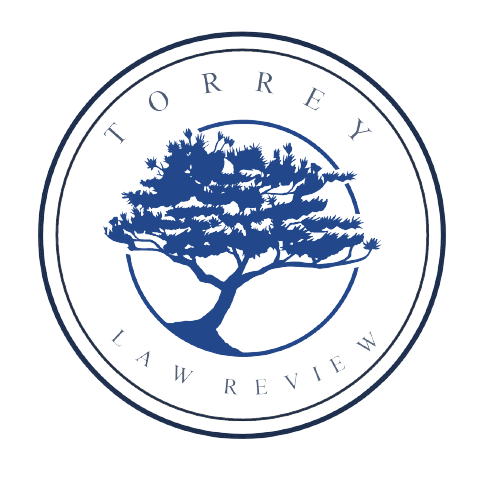Cohen v. California
Introduction
The First Amendment was adopted on December 15, 1791, along with the rest of the Bill of Rights. It prohibits, among other things, the government from promoting any one religion over any other or restricting one’s religious practices. The government also is not allowed to restrict the press and must allow individuals to speak freely. The First Amendment also guarantees the right of citizens to assemble peacefully to petition their government.3 Cohen v. California, a 1971 U.S. Supreme Court decision, focuses on freedom of expression regarding a profane jacket worn by Paul Robert Cohen in a Los Angeles courthouse.
Facts
On April 26, 1968, Paul Robert Cohen, a nineteen-year-old department store worker, wore a jacket inside of a Los Angeles courthouse that read “Fuck the Draft.” He was referring to the draft that was taking place for the Vietnam War. When he entered a courtroom, he removed his jacket and folded it over his arm, but an officer who had seen the jacket sent a note to the presiding judge suggesting he be held in contempt of court. The judge did not do so, but when Cohen exited the courtroom, the officer immediately arrested him. Cohen was charged with violating Section 415 of the California Penal Code by “‘maliciously and willfully disturb[ing] the peace or quiet of any neighborhood or person . . . by . . . offensive conduct.’” He was then found guilty in the Los Angeles Municipal Court and sentenced to 30 days’ imprisonment.
Legal Background
Cohen appealed his conviction to the Court of Appeal of California, Second Appellate District, arguing that the freedom to wear an obscene shirt in public and express his beliefs was protected by the First Amendment. The appellate court affirmed the conviction and “held that ‘offensive conduct’ means ‘behavior which has a tendency to provoke others to acts of violence or to in turn disturb the peace.’” The appellate court asserted that Cohen had “carefully chose[n] the forum for his views where his conduct would have an effective shock impact”; that he should have been aware that the words on his jacket could have resulted in violence; and that the expletive language on his jacket was “clearly offensive and below the ‘minimum standard of propriety and the accepted norm of public behavior.’” 13 After the Supreme Court of California declined to review the case, the U.S. Supreme Court granted cert.
Holding & Reasoning
The Supreme Court held that Cohen’s decision to wear his “Fuck the Draft” jacket inside a Los Angeles courthouse was protected by the First Amendment. The Court determined that the jacket was not directed toward a single person in the courthouse, and although it contained expletives, it was not meant to hurt anyone or to provoke violence.15 Justice Harlan, who authored the 5-4 majority opinion in favor of Cohen, wrote that “one man’s vulgarity is another’s lyric.”
Analysis
The United States Supreme Court made the correct decision in the case of Cohen v. California. The First Amendment states that “Congress shall make no law . . . abridging the freedom of speech.” Therefore, one is able to express freely what they believe, and Cohen happened to do so by wearing a jacket that contained words and expletives in a Los Angeles courthouse. Cohen’s jail time of 30 days was deemed unconstitutional, as he simply wore a jacket that contained explicit language and took a strong opinion on the Vietnam War draft process, which is conduct that the First Amendment protects.
The outcome of Cohen v. California set precedent for several more recent cases, including State v. Montgomery and Skokie v. National Socialist Party of America. In the Montgomery case, Marc D. Montgomery was arrested after shouting “fucking pigs, fucking pig ass hole” to two police officers passing in their patrol car. The Court of Appeals of Washington ruled in favor of Mr. Montgomery, referencing Cohen v. California as it noted that restricting speech solely based on the level of how offensive the words were would result in a “‘substantial risk of suppressing ideas in the process.’” In the Skokie case, the National Socialist Party of America (NSPA) regularly held marches and public demonstrations wearing Nazi storm trooper uniforms with swastikas displayed. The Illinois Supreme Court was faced with the question of whether these actions constituted “fighting words” that did not merit First Amendment protection. The court quoted the Cohen opinion at length and found that the Supreme Court’s reasons for “refus[ing] to find that [Cohen’s] jacket inscription constituted fighting words” were “applicable here.” Thus, the Illinois Supreme Court permitted the NSPA to display the swastika as it marched. Montgomery and Skokie were two of many instances in which Cohen v. California has been relied upon as precedent in cases that revolve around offensive speech and free expression.
